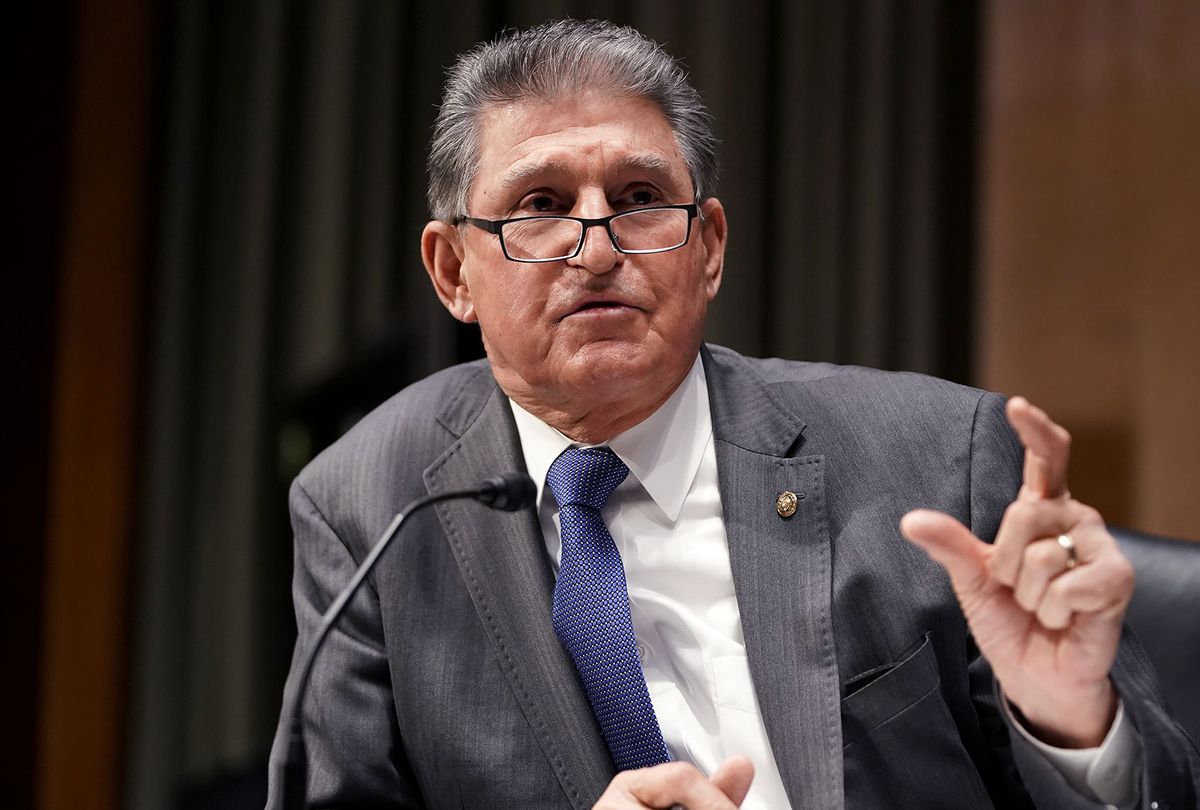Reminding his party one more time exactly how much power he yields in a split chamber, Sen. Joe Manchin delivered another blow to a potential progressive agenda under President Joe Biden amid renewed — but only brief — optimism that the moderate West Virginia lawmaker could be open to dumping the time-honored Senate filibuster.
A procedural tool that offers immense power to the minority, the filibuster requires a 60-vote threshold to advance legislation, effectively ensuring — given the current 50-50 Senate — that Republicans would have the power to prevent Democrats from enacting sweeping policy changes under Biden. (No party has held 60 seats in the Senate since Democrats briefly did after Barack Obama's election in 2008.)
Manchin, the Senate's leading proponent of preserving the filibuster, expressed openness over the weekend to slightly reforming it, such as reinstating the "talking filibuster." That would require that senators physically remain on the chamber floor to block legislation. Currently, members can simply inform leadership they plan to filibuster without being present.
Effectively, a talking filibuster would create a higher bar for the minority to block bills and might mean that the Senate majority could simply play a sort of waiting game. For a fleeting moment, progressives thought that perhaps Manchin was coming around, only to have their hopes squashed on Tuesday when he clarified his position. In the Senate's 50-50 split, Democrats would need every single one of their members to be on board in order to vote the filibuster into oblivion.
"I want to make it very clear to everybody: There's no way that I would vote to prevent the minority from having input into the process in the Senate," Manchin told Politico. "That means protecting the filibuster. It must be a process to get to that 60-vote threshold."
Manchin will undoubtedly face increased pressure the deeper we go into the Biden administration, since it's abundantly clear Senate Republicans will block any number of the president's initiatives. Moderates like Manchin say the remedy is found in bipartisanship and negotiation. Progressives say it's long past time to trash the filibuster, which is not enshrined in the Constitution and certainly wasn't contemplated by the founding fathers.
But Manchin isn't alone; Sen. Kyrsten Sinema is right there with him. The Arizona Democrat is also against removing the filibuster. Unlike Manchin, the lone elected statewide Democrat in what is now a red stronghold, Sinema represents a state that has been trending increasingly blue for some time. Biden narrowly carried Arizona, and the state now has two Democratic senators. (Sen. Mark Kelly, who ousted GOP incumbent Martha McSally in November, is the other.)
The Grand Canyon State's voters are apparently more interested in passing new laws than preserving abstruse Senate rules, or so recent polling suggests. A Data for Progress survey reported by Vox showed that 61 percent of voters indicated they favored passing significant legislation, while just 26 percent said they preferred to "preserve traditional Senate procedures and rules like the filibuster."
In a recent letter to a constituent, Sinema noted the long-term consequences dumping the filibuster could have on a future Democratic minority.
"Regardless of the party in control of the Senate, respecting the opinions of senators from the minority party will result in better, common-sense legislation," Sinema wrote. "My position remains exactly the same now that I serve in the majority. While eliminating the filibuster may result in some short-term legislative gains, it would deepen partisan divisions and sacrifice the long-term health of our government."



Shares